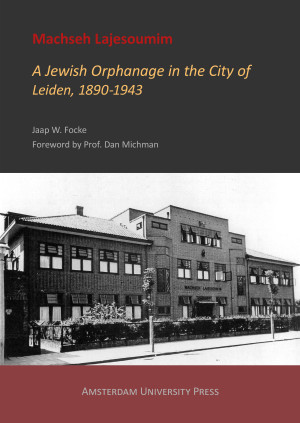“It is a great achievement that out of a case study of one institution, the author(s) managed to create both a personal monument for so many individuals as well as a comprehensive overview of the Shoah in the Netherlands… By reading this book one gets to know the important facts and at the same time gets drawn into the stories of the people involved. It enables approaching history in both a cerebral and an emotional way. In short, when you read this book, you come close to understanding the Holocaust.”
- Hannah L. van den Ende, Studia Rosenthalia, volume 48.2 (2022)
“This book fits in with the work done lately by remembrance organizations such as the Jewish Monument, Camp Westerbork Memorial Centre, and Project Oorlogslevens(‘war lives’) to give victims a name, a face, and a history. It also aligns with the current notion in Holocaust research to return Jewish people their agency by describing and analyzing their choices and actions or survival strategy to escape the Nazi persecution (Finkel 2017).”
- Peter Tammes, Can. J. of Netherlandic Studies/Rev. can. d’études néerlandaises, volume 42.1 (2022)
"Jaap Focke has produced in this superb book a depiction of the Holocaust in the Netherlands that is both moving and informative."
- B. J. O'Brien, 5-Star Amazon UK Review
"By focusing on the experiences of the individual orphans and their carers the author has given the story about the Jewish orphanage in Leiden an essential depth. A remarkable and admirable book."
- Prof. Dr. Hans Blom
“A study that should be used in Holocaust education; through this one example, the encounter with the enormity of the Holocaust can be better understood.”
- Prof. Dr. Dan Michman, Yad Vashem, Jerusalem
“De indrukwekkende studie van Leidenaar Jaap Focke is de weerslag van uitvoering bronnen- en archiefonderzoek en gesprekken met betrokkenen en nabestaanden. Het is in toegankelijk Engels geschreven, veronderstelt weinig voorkennis van de lezer en heeft zo onmiskenbaar de ambitie een internationaal (jong) publiek te bereiken.”
-Ton van Brussel, Oud Leiden Nieuws (10/1)
"Het boek Machseh Lajesoumim. A Jewish Orphanage in the City of Leiden, 1890-1943 is in de boekhandel te koop, maar ook gratis te downloaden via de website van Amsterdam University Press. De weergave van de persoonlijke documenten komt echter vooral tot zijn recht in de gedrukte uitgave. En het zijn die documenten samen met de opgetekende verhalen en de leeftijden van de slachtoffers die het boek van Focke bij vlagen een vergelijkbare intimiteit geeft als het verhaal van Anna Frank. Het boek van Jaap Focke is dan ook zonder meer een indrukwekkend eerbetoon aan de kinderen en hun begeleiders die nu bijna tachtig jaar geleden zijn vermoord."
- Roeland van Wely, Sleutelstad, December 2021

